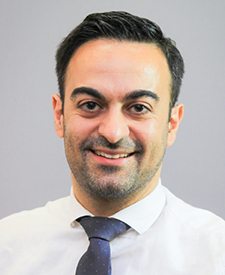FOR IMMEDIATE RELEASE OTTAWA, June 18, 2018—Research Canada held its 13th Annual General Meeting on June 13, 2018 and launched...
Author: researchcanada (Research Canada)


Parliamentary Health Research Caucus Luncheon to Highlight Innovations in Healthy Aging
FOR IMMEDIATE RELEASE OTTAWA, June 11, 2018 — Canada’s aging population is living longer and stronger. We know the mental and...

Alan Forster, MD, The Ottawa Hospital and University of Ottawa
Dr. Alan Forster is the Vice President of Innovation and Quality at the Ottawa Hospital which is one of Canada’s largest and most productive research hospitals. His research in the domain of health system quality and effectiveness has had significant global impact. His work, which takes advantage of a sophisticated data and analytics platform...

Phedias Diamandis, MD, PhD, Princess Margaret Cancer Centre, University Health Network
Dr. Phedias Diamandis is using Artificial Intelligence (AI) to train computers to objectively differentiate brain tumor types, an improvement over microscopic analyses by doctors that are somewhat qualitative and prone to interpretive errors. Training involves exposing computers to a large series of images with known clinical outcomes ...

Mark Daley, PhD, Western University
Dr. Mark Daley and his research team are devoted to the development of computational and mathematical methods and techniques for modelling, probing, and understanding our world. Dr. Daley and his team have made contributions to a diverse range of disciplines including neuroscience, astrophysics...

Guillaume Bourque, PhD, McGill University
Dr. Guillaume Bourque is a leader in the field of Computational Genomics and Epigenomics. He is the Director of Bioinformatics at the McGill University and Génome Québec Innovation Center, the Director of the Canadian Center for Computational Genomics and the Director of the McGill Epigenomics Mapping Center...

Brenda Andrews, PhD, University of Toronto
Dr. Brenda Andrews is a leader in the field of large scale genetics and genome biology that aims to understand how thousands of genes and their protein products work together in the cell. Last year, Dr. Andrews’ team and their collaborators developed a deep learning algorithm, DeepLoc, that can track protein movement in cells...
Parliamentary Reception on How A.I. is Reshaping Healthcare
PARLIAMENTARY HEALTH RESEARCH CAUCUS RECEPTION TO HIGHLIGHT HOW ARTIFICIAL INTELLIGENCE IS RESHAPING HEALTH CARE IN CANADA FOR IMMEDIATE RELEASE...
